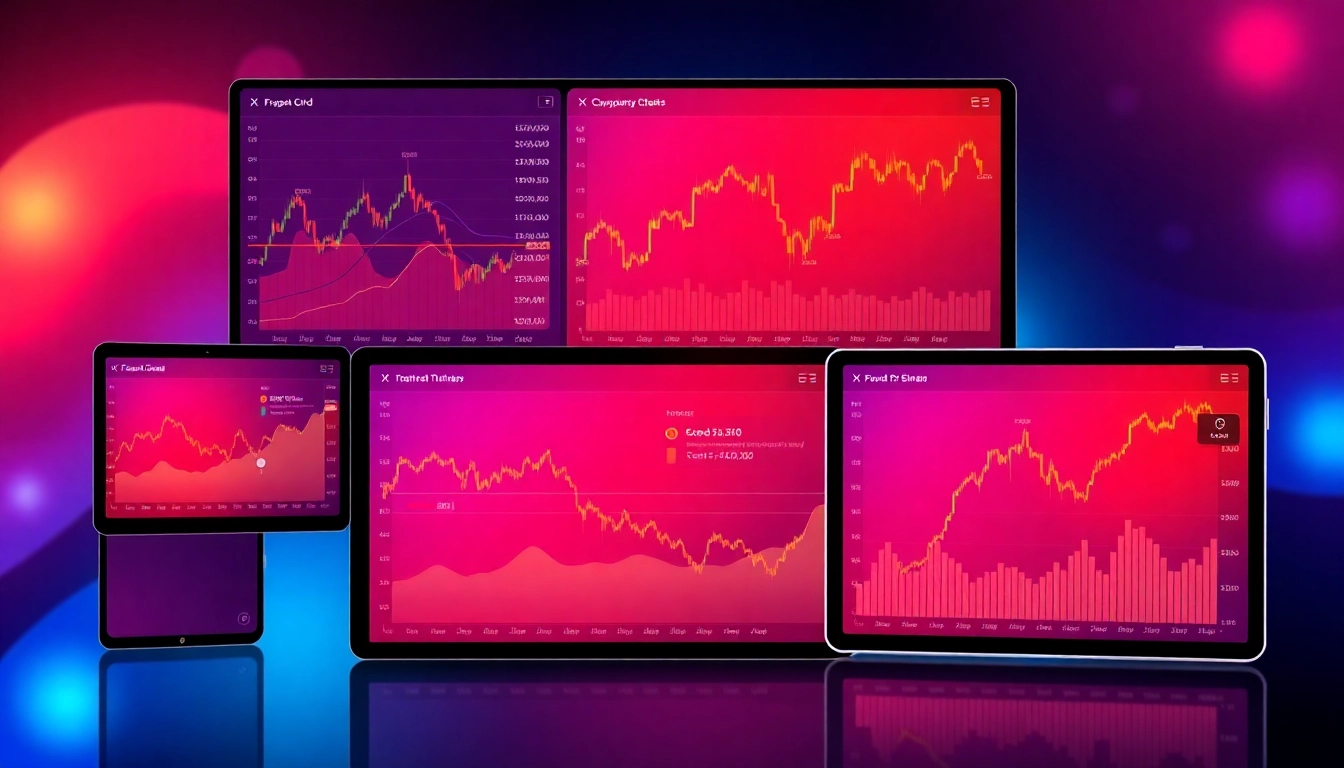Understanding Technology: A Comprehensive Overview
Definition of Technology
Technology, in the broadest sense, refers to the application of scientific knowledge to devise tools, systems, and processes aimed at solving problems and achieving practical goals. It encompasses a wide array of disciplines, including engineering, information technology, biological sciences, and materials science. According to the technology definition provided by Britannica, it involves the practical use of scientific knowledge to impact human life positively. As we delve deeper into this topic, we will explore its historical roots, various forms, and the profound effect it has on modern society.
Historical Evolution of Technology
The evolution of technology tracks back to ancient times, with the first stone tools created roughly 2.5 million years ago representing the earliest known form of technology. Over time, as human societies advanced, so did their tools and methods. From the invention of the wheel and the writing system in ancient civilizations to the Industrial Revolution, which marked a significant shift in manufacturing processes, technology has continually evolved. This section will further elaborate on key milestones, including:
- The Agricultural Revolution: Transition from nomadic to settled farming practices, showcasing advances in tool-making.
- The Industrial Revolution: Introduction of machinery, steam power, and mass production, revolutionizing economies and societies.
- The Digital Revolution: The shift from analog to digital technology, leading to the rise of computers and the internet.
These transformations not only altered how individuals and societies functioned but also reshaped global dynamics, leading to the interconnected world we live in today.
Types of Technology Transforming Our Lives
Modern technology encompasses a variety of types that significantly influence our daily lives. Some of the key categories include:
- Information Technology: Focuses on the use of computers and software to manage and process information, pivotal in business and communication.
- Biotechnology: Involves the manipulation of living organisms or their components to develop products, including pharmaceuticals and agricultural enhancements.
- Green Technology: Aims to reduce environmental impact through sustainable practices and innovations, such as renewable energy sources and energy-efficient designs.
- Communication Technology: Includes devices and systems that enhance communication capabilities, such as smartphones, social media platforms, and video conferencing tools.
- Transportation Technology: Advances in vehicles and infrastructure, including electric cars and high-speed rail, impacting mobility and connectivity.
Each type of technology not only solves existing problems but also creates new opportunities, presenting unique challenges and benefits to society.
The Role of Technology in Daily Life
Common Technologies We Use Daily
Every day, individuals engage with numerous technologies that streamline tasks, enhance productivity, and facilitate communication. Common examples include:
- Smartphones: These devices have become essential tools for communication, navigation, and accessing information.
- Home Automation Systems: Smart home devices like thermostats, lights, and security cameras allow users to manage their homes remotely.
- Online Education Platforms: E-learning tools facilitate continuous education, making knowledge accessible globally.
- Wearable Technology: Fitness trackers and smartwatches monitor health metrics, enhancing personal care and awareness.
These technologies contribute to improving efficiency and enriching experiences across various facets of life, from personal to professional spheres.
The Impact of Technology on Communication
Technology has profoundly transformed how we communicate. The introduction of the internet has led to the emergence of various communication tools, including emails, instant messaging, and video conferencing. The impact of these tools includes:
- Instant Connectivity: People can connect with others around the globe in real-time, fostering global relationships.
- Multimedia Sharing: Platforms like social media enable the exchange of information through images, videos, and text.
- Collaboration Tools: Applications like Slack, Zoom, and Google Workspace support teams in working together effortlessly, regardless of location.
However, this change comes with challenges, including the potential for miscommunication and a decline in face-to-face interactions.
Technology’s Influence on Work and Productivity
Technology has shifted the landscape of work, leading to enhanced productivity and efficiency. Businesses leverage various tech solutions to streamline operations, such as:
- Automated Systems: These reduce manual work and errors, allowing employees to focus on higher-level tasks.
- Project Management Software: Tools like Trello and Asana help teams organize tasks, set deadlines, and track progress.
- Remote Work Technologies: Improved connectivity facilitates a remote work culture, enabling employees to work from anywhere.
While these advancements create opportunities for growth, they also necessitate adapting to new skills and learning environments.
Emerging Technologies and Future Trends
Artificial Intelligence: The Next Frontier
Artificial Intelligence (AI) represents one of the most significant advancements in technology today. AI encompasses machine learning, natural language processing, and robotics, among other fields. Its implications include:
- Automation of Routine Tasks: AI systems can handle repetitive tasks, increasing efficiency and reducing costs.
- Data Analysis: AI algorithms process vast amounts of data to derive insights, aiding in decision-making across various industries.
- Enhanced User Experience: AI powers personalized experiences through recommendation systems, chatbots, and virtual assistants.
Looking ahead, ethical considerations and the safe deployment of AI technology will become imperative as its capabilities expand.
Sustainable Technologies for Environmental Impact
In the age of climate change and environmental degradation, sustainable technology plays a critical role in minimizing ecological footprints. Innovations such as:
- Solar and Wind Energy: Harnessing renewable energy sources reduces reliance on fossil fuels.
- Energy-Efficient Appliances: The adoption of smart devices and energy-efficient technologies can lower energy consumption significantly.
- Waste Management Technologies: Advanced recycling and waste-to-energy systems promote sustainability and reduce landfill usage.
These technologies facilitate a pathway toward a greener future, addressing urgent environmental concerns while driving sustainability forward.
Tech Innovations to Watch in the Coming Years
As technology continues to evolve at a rapid pace, several innovations are poised to transform the way we live and work. Key areas to watch include:
- Blockchain Technology: Beyond cryptocurrencies, blockchain offers secure transaction methods across various sectors, enhancing transparency and trust.
- 5G Technology: The rollout of 5G networks promises faster connectivity, enabling advancements in IoT and smart city initiatives.
- Quantum Computing: This technology has the potential to solve complex problems beyond the reach of current computing capabilities.
Staying informed about these innovations will be crucial for businesses and individuals to adapt to and leverage the technology landscape shifting beneath them.
Navigating Technological Challenges
Privacy and Security in the Digital Age
As technology becomes increasingly integral to everyday life, concerns over privacy and data security grow. Major challenges include:
- Data Breaches: High-profile breaches can expose sensitive information, necessitating robust data protection strategies.
- User Privacy: Striking a balance between personalized experiences and user privacy rights is an ongoing struggle for many organizations.
- Cybersecurity Threats: Evolving threats require continual investment in security measures to protect systems and data.
Establishing comprehensive privacy policies and utilizing advanced security technologies will be essential in safeguarding information in the digital era.
Combatting Digital Addiction
In our technology-driven world, digital addiction has emerged as a significant concern. The effects of excessive screen time and technology use can lead to:
- Reduced Productivity: Over-reliance on devices can distract from essential tasks and goal completion.
- Negative Mental Health Effects: Increased screen time has been linked to anxiety, depression, and reduced social interaction.
- Sleep Disruption: The blue light emitted by screens can interfere with sleep routines, leading to fatigue.
Combatting these issues requires setting boundaries around technology use and promoting healthy habits to maintain a balanced lifestyle.
Ensuring Accessibility in a Tech-Driven World
Ensuring equitable access to technology is critical in achieving social inclusion and empowerment. Challenges to address include:
- Digital Divide: Bridging the gap in access to technology and the internet among various socioeconomic groups is paramount.
- Assistive Technologies: Developing inclusive technologies is vital for empowering individuals with disabilities and enhancing their quality of life.
- Training and Education: Providing education and resources to enhance digital literacy ensures everyone can benefit from technological advancements.
A concerted effort from governments, organizations, and communities is needed to ensure the benefits of technology are shared equitably.
Leveraging Technology for Growth and Success
Best Practices for Technology Adoption in Businesses
As businesses navigate the implementation of new technology, adhering to best practices will maximize effectiveness. Key considerations include:
- Thorough Needs Assessment: Identifying specific business needs helps ensure the right technologies are adopted.
- Employee Training: Comprehensive training programs enhance adoption and utilization of new systems.
- Feedback Mechanisms: Establishing channels for employee feedback ensures continuous improvement and adaptation.
By following these practices, companies can enhance their capabilities and drive innovations.
Measuring Success Through Tech Implementation
Measuring the impact of technology is crucial for understanding its effectiveness. Businesses should establish key performance indicators (KPIs) such as:
- Productivity Metrics: Assessing improvements in productivity and efficiency post-implementation.
- Cost Savings: Calculating the reduction in costs due to process improvements and automation.
- Employee Satisfaction: Gaining insights into employee experiences and satisfaction with the new systems.
Regular evaluations will help businesses refine their strategies and optimize technology use.
Case Studies: Successful Use of Technology
Several organizations have successfully embraced technology, leading to significant improvements in their operations. For example:
- Amazon: Utilization of advanced data analytics and AI to optimize supply chain operations and enhance customer experience.
- Netflix: Adoption of algorithms to personalize content recommendations, resulting in increased customer retention.
- Tesla: Integration of innovative manufacturing processes and battery technology, helping advance the electric vehicle market.
Case studies like these illustrate the potential of technology to drive growth and transform industries dramatically.




